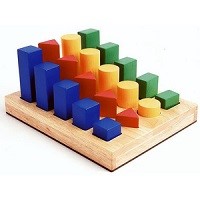Java 8 How to sort a Map
By:Roy.LiuLast updated:2019-08-17

Java 8 Stream examples to sort a Map, by keys or by values.
1. Quick Explanation
Steps to sort a Map in Java 8.
- Convert a Map into a Stream
- Sort it
- Collect and return a new LinkedHashMap (keep the order)
Map result = map.entrySet().stream() .sorted(Map.Entry.comparingByKey()) .collect(Collectors.toMap(Map.Entry::getKey, Map.Entry::getValue, (oldValue, newValue) -> oldValue, LinkedHashMap::new));
P.S By default, Collectors.toMap will returns a HashMap
2. Sort by Keys
SortByKeyExample.java
package com.mkyong.test;
import java.util.HashMap;
import java.util.LinkedHashMap;
import java.util.Map;
import java.util.stream.Collectors;
public class SortByKeyExample {
public static void main(String[] argv) {
Map<String, Integer> unsortMap = new HashMap<>();
unsortMap.put("z", 10);
unsortMap.put("b", 5);
unsortMap.put("a", 6);
unsortMap.put("c", 20);
unsortMap.put("d", 1);
unsortMap.put("e", 7);
unsortMap.put("y", 8);
unsortMap.put("n", 99);
unsortMap.put("g", 50);
unsortMap.put("m", 2);
unsortMap.put("f", 9);
System.out.println("Original...");
System.out.println(unsortMap);
// sort by keys, a,b,c..., and return a new LinkedHashMap
// toMap() will returns HashMap by default, we need LinkedHashMap to keep the order.
Map<String, Integer> result = unsortMap.entrySet().stream()
.sorted(Map.Entry.comparingByKey())
.collect(Collectors.toMap(Map.Entry::getKey, Map.Entry::getValue,
(oldValue, newValue) -> oldValue, LinkedHashMap::new));
// Not Recommend, but it works.
//Alternative way to sort a Map by keys, and put it into the "result" map
Map<String, Integer> result2 = new LinkedHashMap<>();
unsortMap.entrySet().stream()
.sorted(Map.Entry.comparingByKey())
.forEachOrdered(x -> result2.put(x.getKey(), x.getValue()));
System.out.println("Sorted...");
System.out.println(result);
System.out.println(result2);
Output
Original...
{a=6, b=5, c=20, d=1, e=7, f=9, g=50, y=8, z=10, m=2, n=99}
Sorted...
{a=6, b=5, c=20, d=1, e=7, f=9, g=50, m=2, n=99, y=8, z=10}
{a=6, b=5, c=20, d=1, e=7, f=9, g=50, m=2, n=99, y=8, z=10}
3. Sort by Values
SortByValueExample.java
package com.mkyong.test;
package com.mkyong;
import java.util.Comparator;
import java.util.HashMap;
import java.util.LinkedHashMap;
import java.util.Map;
import java.util.stream.Collectors;
public class SortByValueExample {
public static void main(String[] argv) {
Map<String, Integer> unsortMap = new HashMap<>();
unsortMap.put("z", 10);
unsortMap.put("b", 5);
unsortMap.put("a", 6);
unsortMap.put("c", 20);
unsortMap.put("d", 1);
unsortMap.put("e", 7);
unsortMap.put("y", 8);
unsortMap.put("n", 99);
unsortMap.put("g", 50);
unsortMap.put("m", 2);
unsortMap.put("f", 9);
System.out.println("Original...");
System.out.println(unsortMap);
//sort by values, and reserve it, 10,9,8,7,6...
Map<String, Integer> result = unsortMap.entrySet().stream()
.sorted(Map.Entry.comparingByValue(Comparator.reverseOrder()))
.collect(Collectors.toMap(Map.Entry::getKey, Map.Entry::getValue,
(oldValue, newValue) -> oldValue, LinkedHashMap::new));
//Alternative way
Map<String, Integer> result2 = new LinkedHashMap<>();
unsortMap.entrySet().stream()
.sorted(Map.Entry.<String, Integer>comparingByValue().reversed())
.forEachOrdered(x -> result2.put(x.getKey(), x.getValue()));
System.out.println("Sorted...");
System.out.println(result);
System.out.println(result2);
Output
Original...
{a=6, b=5, c=20, d=1, e=7, f=9, g=50, y=8, z=10, m=2, n=99}
Sorted...
{n=99, g=50, c=20, z=10, f=9, y=8, e=7, a=6, b=5, m=2, d=1}
{n=99, g=50, c=20, z=10, f=9, y=8, e=7, a=6, b=5, m=2, d=1}
4. Map<Object,Object>
The Stream can’t sort the Map<Object,Object> directly. To solve it, convert it into Map<String,String>, review below example.
Note
If you have better idea to sort it, do let me know.
If you have better idea to sort it, do let me know.
DisplayApp.java
package com.mkyong;
import java.util.LinkedHashMap;
import java.util.Map;
import java.util.Properties;
import java.util.Set;
import java.util.stream.Collectors;
public class DisplayApp {
public static void main(String[] args) {
Properties properties = System.getProperties();
// not easy to sort this
Set<Map.Entry<Object, Object>> entries = properties.entrySet();
LinkedHashMap<String, String> collect = entries.stream()
//Map<String, String>
.collect(Collectors.toMap(k -> (String) k.getKey(), e -> (String) e.getValue()))
.entrySet()
.stream()
.sorted(Map.Entry.comparingByKey())
.collect(Collectors.toMap(Map.Entry::getKey, Map.Entry::getValue,
(oldValue, newValue) -> oldValue, LinkedHashMap::new));
collect.forEach((k, v) -> System.out.println(k + ":" + v));
Note
Not using Java 8? Try this classic way to sort a Map in Java.
Not using Java 8? Try this classic way to sort a Map in Java.
References
- How to sort a Map in Java
- LinkedHashMap JavaDoc
- Collectors.toMap() JavaDoc
- More Fun with Wildcards
- Collections.sort() signature
- Difference between and in Java
From:一号门

COMMENTS